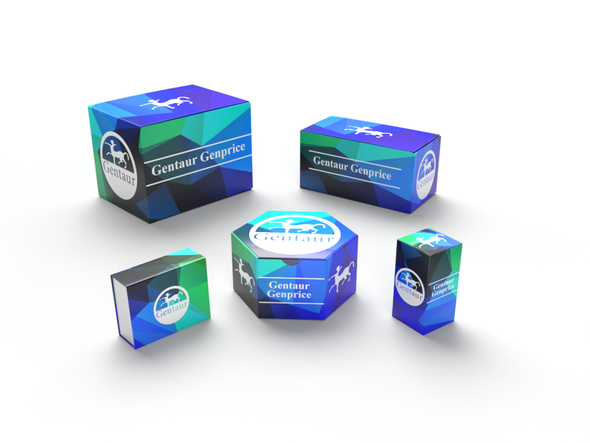Description
DDR1 Antibody | 13-682 | Gentaur UK, US & Europe Distribution
Host: Rabbit
Reactivity: Human
Homology: N/A
Immunogen: Recombinant fusion protein containing a sequence corresponding to amino acids 290-420 of human DDR1 (NP_054700.2) .
Research Area: Cancer, Immunology, Neuroscience, Signal Transduction
Tested Application: WB
Application: WB: 1:1000 - 1:2000
Specificiy: N/A
Positive Control 1: 293T
Positive Control 2: SW480
Positive Control 3: N/A
Positive Control 4: N/A
Positive Control 5: N/A
Positive Control 6: N/A
Molecular Weight: Observed: 125kDa
Validation: N/A
Isoform: N/A
Purification: Affinity purification
Clonality: Polyclonal
Clone: N/A
Isotype: IgG
Conjugate: Unconjugated
Physical State: Liquid
Buffer: PBS with 0.02% sodium azide, 50% glycerol, pH7.3.
Concentration: N/A
Storage Condition: Store at -20˚C. Avoid freeze / thaw cycles.
Alternate Name: DDR1, Cell adhesion kinase, CD167, CD167a antigen, EDDR1, ENTRK4, Mammary carcinoma kinase 10, MCK10, NEP, PTK3, PTK3A, RTK6, Tyrosine-protein kinase CAK, CAK, DDR, Discoidin domain receptor 1, HGK2, MCK-10, NTRK4, Protein-tyrosine kinase 3A, Protein-tyrosine kinase RTK-6, TRK E, TRKE, Tyrosine kinase DDR
User Note: Optimal dilutions for each application to be determined by the researcher.
BACKGROUND: Receptor tyrosine kinases play a key role in the communication of cells with their microenvironment. These kinases are involved in the regulation of cell growth, differentiation and metabolism. The protein encoded by this gene belongs to a subfamily of tyrosine kinase receptors with homology to Dictyostelium discoideum protein discoidin I in their extracellular domain, and that are activated by various types of collagen. Expression of this protein is restricted to epithelial cells, particularly in the kidney, lung, gastrointestinal tract, and brain. In addition, it has been shown to be significantly overexpressed in several human tumors. Alternatively spliced transcript variants encoding different isoforms have been described for this gene.



![DDR1 Antibody [AMM02518G] DDR1 Antibody [AMM02518G]](https://cdn11.bigcommerce.com/s-1rdwiq712m/images/stencil/590x590/products/60667/60971/gentaur-genprice__26005.1661610467__29809.1661628092__75433.1661676199__77988.1661684280__64362.1661692443__72973.1661863408.png?c=1)


